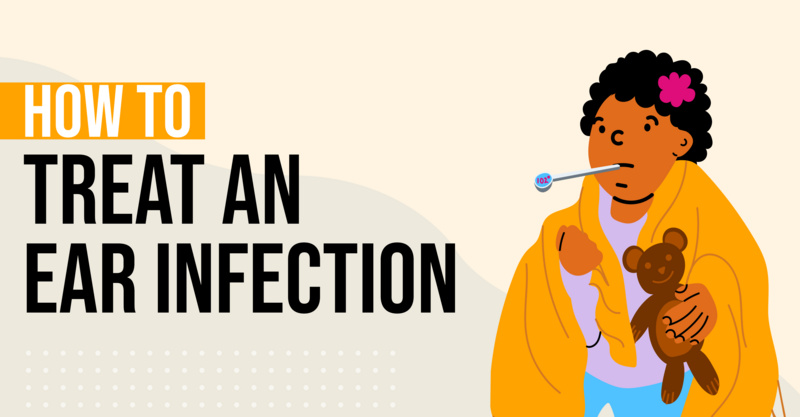Key Points
- Farsightedness, also known as hyperopia and presbyopia, is a condition characterized by blurred vision when looking at nearby objects, eyestrain, headaches, and squinting, among other symptoms.
- The condition can be caused by a variety of factors including a short eyeball, weak focusing power, an abnormal eye shape, genetics, and aging.
- While there is no known prevention for farsightedness, it can be effectively managed with eyeglasses, contact lenses, and in some cases, laser eye surgery.
- Each treatment option has its own set of benefits and potential risks, which should be discussed with a healthcare professional.
- The article provides a list of questions a doctor may ask during a consultation about farsightedness treatment, aiding in patient preparation.
Possible Symptoms for Farsightedness
- Blurred vision when looking at nearby objects[1]
- Aching eyes
- Eyestrain
- Headache when reading
- Squinting[2]
- Crossed eyes in some children
Top 5 Farsightedness Causes
1. Short Eyeball
Farsightedness may be caused by having an eye that is too short from front to back. This creates a shorter distance between the cornea and retina and causes the incoming light to focus behind the retina instead of directly on the retina. Most cases of farsightedness are caused by having a short eyeball.[3]
2. Weak Focusing Power
An eye that is having trouble focusing will often partially or fully compensate through a process called accommodation. In accommodation, tiny muscles inside the eye contract to alter the shape of the lens and bring objects into focus.[3] Eyes that have weak or poor focusing power may not accommodate fully to resolve farsightedness.[1]
3. Abnormal Eye Shape
Farsightedness may be caused by having an abnormally shaped cornea or lens. This can lead to problems with focusing and seeing objects up close due to the way light enters the eye.[2]
4. Genetics
Most people with farsightedness are born with this condition and typically, have a short eyeball or abnormally shaped cornea or lens. Farsightedness is often hereditary and passes from parents to their children.[2]
5. Aging
Older adults may suffer from presbyopia or age-related farsightedness. With presbyopia, the natural lens hardens and muscle fibers are affected, causing difficulty with focusing and seeing objects up close. Anyone aged 35 and older is at risk for presbyopia, which may also cause headaches and eye strain.[4]
2 Ways to Prevent Farsightedness
1. Wear Eyeglasses or Contacts
Farsightedness cannot be prevented, but wearing eyeglasses or contact lenses can help correct problems with focus and vision. People who are farsighted need lenses with thin edges and thick centers to help bring images into proper focus.[3]
2. Receive Laser Eye Surgery
Laser eye surgery such as LASIK may correct farsightedness, but not everyone who suffers from this condition is an ideal candidate for the procedure. An eye doctor can determine whether a patient with farsightedness could benefit from laser eye surgery.[3]
Possible Farsightedness Treatment Options
1. Eyeglasses
Eyeglasses—specifically reading glasses—can treat farsightedness by bending and focusing light before it reaches the lens in the eye. Eyeglasses can compensate for the weak focusing power of the natural lens and help people see nearby objects more clearly. Those who already wore eyeglasses before developing farsightedness may benefit more from wearing varifocal or multifocal glasses to avoid switching between multiple pairs of eyeglasses. An eye doctor or optometrist can recommend and prescribe the proper type of eyeglasses for managing farsightedness.[5]
2. Contact Lenses
Contact lenses work exactly like eyeglasses to improve farsightedness by bending and focusing light before it reaches the natural lens in the eye. Those who are physically active, and don’t like their physical appearances when wearing eyeglasses may prefer contact lenses over eyeglasses. However, contact lenses require more maintenance involving insertion, removal, and disinfection to reduce the risk of irritation and infection.[5]
3. Refractive Surgery
Refractive surgeries such as LASIK and PRK can permanently change the shape of the cornea to improve and treat farsightedness.[6] Refractive surgery is shown to be effective at reducing or eliminating the need for eyeglasses and contact lenses. However, these surgeries offer potential risks and complications, such as vision loss, worsened nighttime vision, dry eye syndrome, diminishing results over time, and a continued need for eyeglasses or contact lenses.[7]
Questions Your Doctor May Ask About Farsightedness Treatment
- How long have you been experiencing farsightedness?
- Does anyone else in your family have farsightedness?
- How often do you have eye examinations?
- When was your last eye exam?
- Do you currently wear eyeglasses or contact lenses to correct your vision?
- When was your eyeglasses or contact lenses prescription last changed?
- What other symptoms do you experience?
- Have you considered refractive surgery to correct your vision?
Farsightedness May Also Be Known as:
- Hyperopia
- Hypermetropia
- Farsighted
- Presbyopia
- Ametropia
- Age-related farsightedness
Frequently asked questions
What are the main symptoms of farsightedness?
The main symptoms include blurred vision when looking at close objects, eyestrain, headaches when reading, squinting, and in children, crossed eyes.What causes farsightedness?
Farsightedness can be caused by a short eyeball, weak focusing power, an abnormal eye shape, genetics, and aging.Can farsightedness be prevented?
No, farsightedness cannot be prevented. However, it can be managed effectively with eyeglasses, contact lenses, or in some cases, laser eye surgery.What are the treatment options for farsightedness?
Treatment options include eyeglasses, contact lenses, and refractive surgery. Each option has its own benefits and potential risks.Is everyone suitable for laser eye surgery as a treatment for farsightedness?
No, not everyone is a suitable candidate for laser eye surgery. It's important to discuss this option with a healthcare professional.What are some alternative names for farsightedness?
Some alternative names for farsightedness are hyperopia and presbyopia.What questions might a doctor ask during a consultation about farsightedness treatment?
The doctor might ask about your symptoms, how long you've been experiencing them, and any family history of vision problems.Are there any risks associated with the treatment options for farsightedness?
Yes, each treatment option has its own set of potential risks, which should be discussed with a healthcare professional.
Solv has strict sourcing guidelines and relies on peer-reviewed studies, academic research institutions, and medical associations. We avoid using tertiary references.









